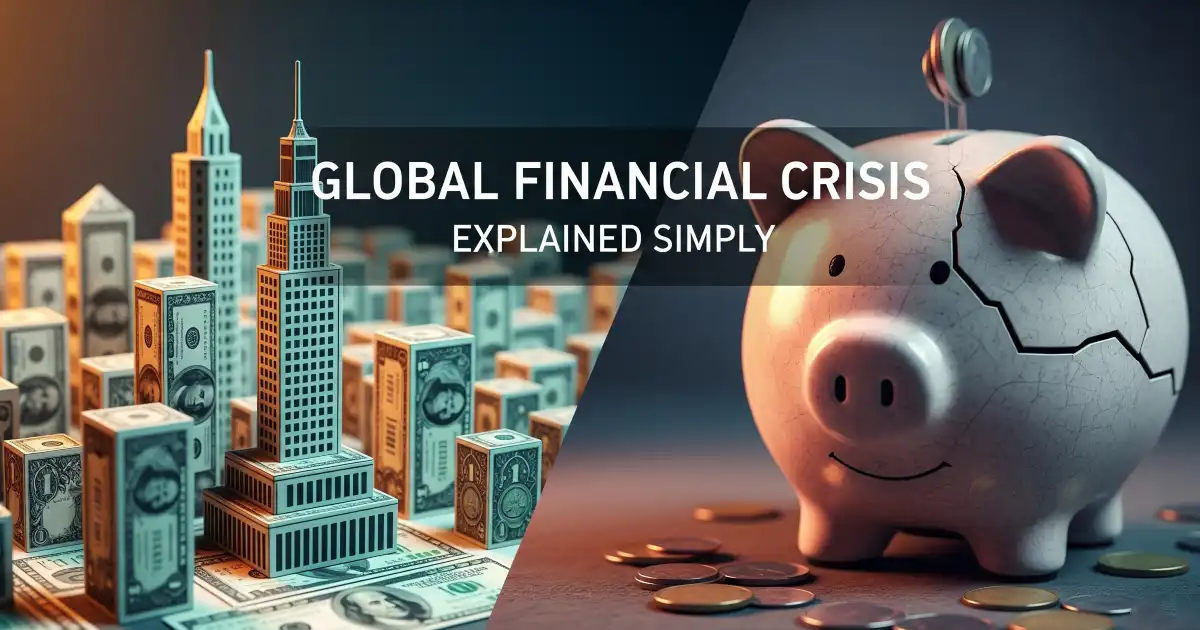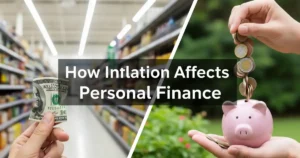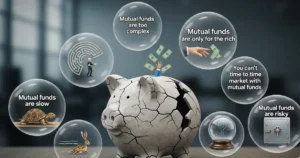The term “global financial crisis” often sounds complicated, but in reality, it refers to a major economic downturn that affects many countries at the same time. The most well-known example is the financial crisis of 2007–2008, which started in the United States and spread around the world. Understanding what a global financial crisis is, why it happens, and how it impacts everyday life can help people make sense of the news and prepare for future economic challenges.
What Is a Global Financial Crisis?
A global financial crisis occurs when financial markets and banking systems face severe problems that spread across multiple countries. It usually involves a collapse in confidence, where businesses, investors, and consumers stop trusting the stability of banks, loans, or investments. This lack of trust leads to reduced spending, falling investments, and job losses, which quickly affect the global economy.
Main Causes of a Global Financial Crisis
- Excessive lending and borrowing: When banks lend too much money without proper checks, it creates risks that can eventually lead to defaults.
- Asset bubbles: When prices of real estate, stocks, or other assets rise too high and then suddenly collapse.
- Poor regulation: Weak financial oversight allows risky behavior by banks and investors.
- Global interconnectedness: In today’s world, economies are linked. A problem in one major country can quickly spread worldwide.
The 2008 Global Financial Crisis in Simple Terms
The 2008 crisis is the clearest example of how financial troubles can become global. In the United States, banks gave out too many home loans to people who could not repay them. When these homeowners defaulted, banks lost billions of dollars. Since banks around the world were tied together through investments, the problem spread across Europe, Asia, and beyond. Stock markets crashed, unemployment rose, and many businesses closed. Governments had to step in with bailouts to stabilize the situation.
How a Financial Crisis Affects Everyday Life
A global financial crisis does not just affect big banks or investors—it impacts ordinary people everywhere. Jobs become harder to find, businesses may shut down, and household incomes shrink. Inflation or deflation can make essentials like food and housing either too expensive or unpredictable. Retirement savings and investments may lose value, leaving people with less security for the future.
Lessons Learned from Past Crises
- Stronger regulations: Governments realized the need for better banking oversight to prevent reckless lending.
- Emergency funds: Both governments and individuals learned the importance of saving for unexpected downturns.
- Diversification: Investors are encouraged not to put all their money in one type of asset, reducing risk during crises.
Can Another Global Financial Crisis Happen?
While past lessons have improved the financial system, risks always remain. Factors like high global debt, economic slowdowns, or sudden geopolitical conflicts could trigger new crises. However, stronger international cooperation, quicker policy responses, and modern financial tools aim to reduce the scale of damage if such events occur again.
Tips to Protect Your Personal Finances During a Crisis
- Build an emergency fund: Save at least 3–6 months of living expenses.
- Reduce unnecessary debt: High-interest loans can become a heavy burden during downturns.
- Diversify investments: Spread your money across stocks, bonds, real estate, and safe assets.
- Focus on essential spending: Cut down on luxuries and focus on needs if income becomes unstable.
Conclusion
A global financial crisis may sound complex, but at its heart, it is about confidence, money flow, and how economies are connected worldwide. By understanding its causes, effects, and lessons, individuals can make smarter financial decisions. While no one can predict the next crisis, staying prepared with savings, smart investments, and controlled spending helps build resilience against future economic challenges.



